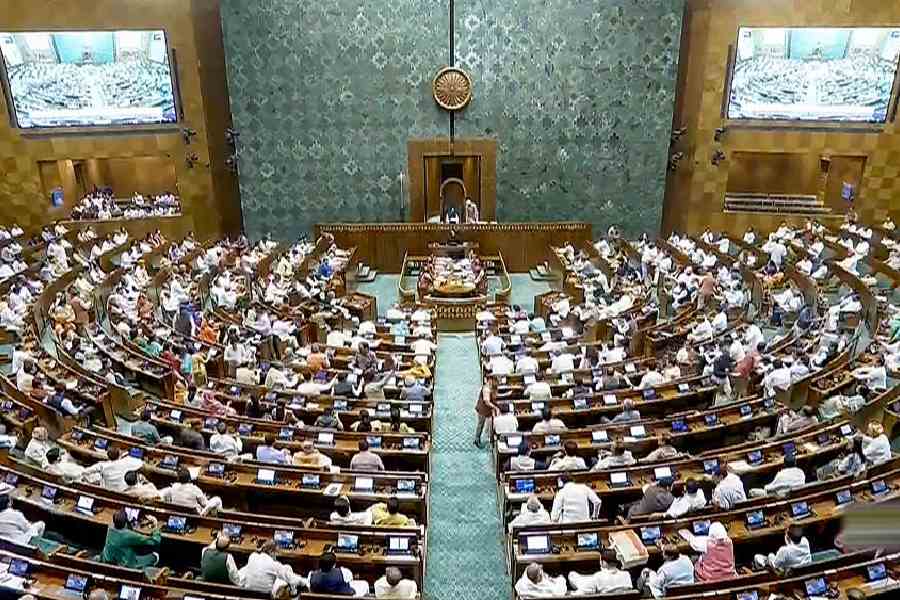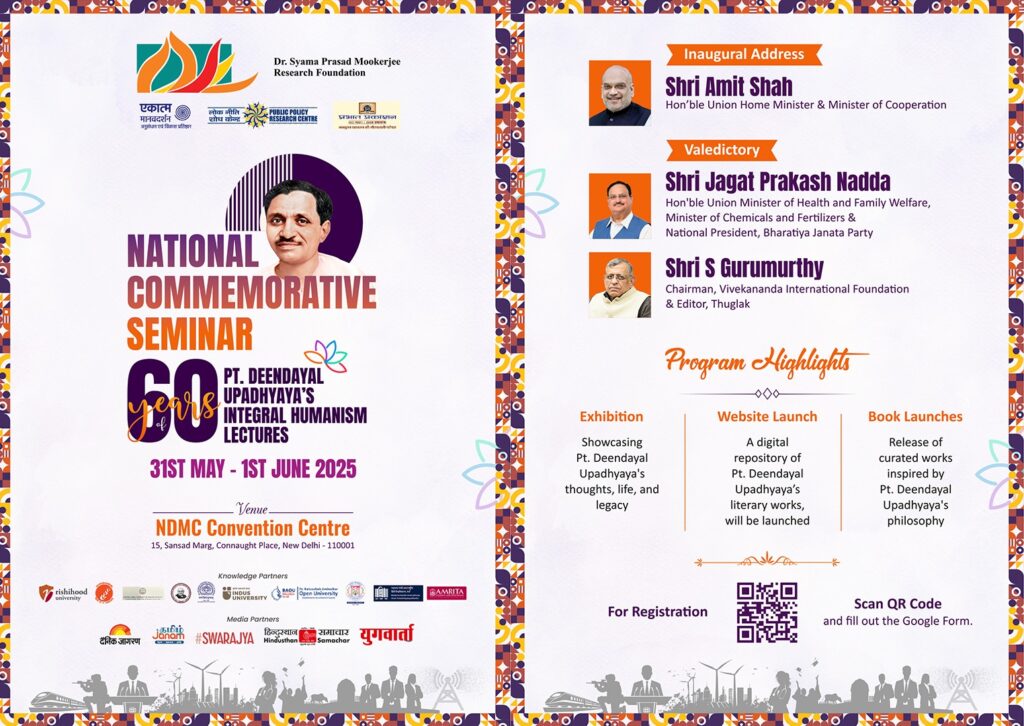Bharat, the World’s Largest Democracy, has made significant strides in various aspects of governance and development. However, one glaring issue has persisted for decades, the under-representation of women in political decision-making process. The day dated, 19th September, 2023 will be written in golden letters in the history of the Indian Parliament as on this day the new Parliament functioned for the first time on the occasion of Ganesh Chaturthi, and the long-pending bill providing the right to reservation for women in the Parliament was introduced in the House. Twenty-seven years after its introduction, the Nari Shakti Vandan Adhiniyam or The Women’s Reservation Bill (128th Constitutional Amendment Bill) was passed on September 20, 2023 with near unanimity to provide 33% Reservation to Women in the Lok Sabha, All State Assemblies, and the Union Territories. History has been scripted as the Bill passed in both the Houses with whopping majority, where women of this country would not only become significant participants in Indian politics but will also contribute in determining the policies of the nation.
The Long Journey in Quest for Empowerment
The concerned issue has been a topic of heated debate, discussion, and contention in Indian politics since it was first introduced in the early 1900s. The history of women’s political reservation in India can be traced back to the National Movement. In 1931, leaders Begum Shah Nawaz and Sarojini Naidu submitted a Memorandum to the British Prime Minister on Women’s Constitutional Status. In 1988, the National Perspective Plan for Women suggested reserving seats for women, leading to the 73rd and 74th Constitutional Amendments. These amendments mandated One-Third of seats for women in Panchayati Raj Institutions and Urban Local Bodies, with provisions for Scheduled Caste/Scheduled Tribe Women. The 2001 National Policy for Women supported reservations in Higher Legislative Bodies. In 2013, a Committee Recommended a Minimum of 50% reservation for women in various governance levels, echoed in the 2015 Report on the Status of Women in India. This emphasized upon the everlasting need for Gender Balance in Politics.
The call for greater representation of women in politics has not merely been a matter of symbolism or political correctness; it has had profound implications for the country’s development. The absence of women’s voices in decision-making processes means that key issues affecting women’s lives may not receive the attention and focus they deserve. Women’s perspectives and experiences often differ from men’s, and it is essential to have diverse voices shaping policies and legislation.
One cannot understate the importance of gender equality in politics. India, despite having a Female President, Prime Minister, Governors, and Chief Ministers in various states over the years, has struggled with gender parity in its Legislative Bodies. Women have been historically under-represented in politics, with the percentage of female Members of Parliament (MPs) and State Legislators being significantly lower than their male counterparts. The goal therefore, is to correct this by extending the quota to all elected legislative bodies, and elected is a key word here, because this quota will apply to the Lok Sabha but not to the Rajya Sabha, similarly to the State Assemblies and not to the State Legislative Councils.
The Bill calls for three steps in a particular order:
- Census
- Delimitation, redrawing Constituencies
- Quota
The bill had garnered both strong support and vehement opposition in the previous decades. Proponents argued that it is a necessary step towards gender equality in politics. It would not only empower women to participate more actively in the political process but also send a strong message about India’s commitment to gender equality. It will be seen to ensure that women’s concerns, such as healthcare, education, and violence against women, are given the attention they deserve. While on the other side of the debate, critics had raised several concerns like the reservation system may lead to tokenism, with women MPs and MLAs being seen as mere placeholders. There were also concerns about the potential impact on the existing political structure, as some argued that it might reduce the opportunities for male candidates.
The Women’s Reservation Bill seeks to address a long-standing gender imbalance by reserving one-third seats for women in Parliament and State Legislative bodies. Although the number of women MPs has increased significantly since the first Lok Sabha, it remains much lower in comparison to several other countries. According to the Inter-Parliamentary Union Report, 2019, the African nation of Rwanda came out on top in the assembly’s long-term portrayal with 61.3%, followed by Cuba with 53.2%. Nepal held the 36th position in South Asia with 32.7%. The unfortunate fact is that India came in at 149th with 14.4% portrayals.
The Indian Women Reservation Bill’s empowerment of women will contribute to the nation’s overall development, especially for women, and will help to address the intertwined socioeconomic and political inequality. It is being shown in Women’s Reservation in Panchayats where one-third of the seats in direct panchayat elections are reserved for women as per the 73rd Constitutional Amendment Act of 1992.
Women’s deliberate exclusion from political participation is unacceptable and a violation of their democratic and constitutional rights, given the systematic undervaluation of their labour in the socioeconomic sphere. Therefore, it is essential for the government to take Proactive Affirmative Action. Although reservation alone cannot completely eradicate India’s deeply ingrained gender bias, it is a vital measure to instigate change and ensure equality.
The Women’s Reservation Bill represents a critical step toward achieving gender equality in Indian politics. It is not a silver bullet but rather a vital tool to address the historical underrepresentation of women in legislative bodies. The fundamental principle of providing equal opportunities for women in politics remains essential for a truly inclusive and representative democracy. Ultimately, the implementation of the Women’s Reservation Bill is not only a significant milestone for India but also a symbol of the nation’s commitment to gender equality and inclusive governance.
While the Women’s Reservation Bill now no more remains in political limbo, the need for gender equality in politics is still as pressing as ever, waiting to see how this landmark bill will voice women at the grassroot levels. I believe that efforts to increase women’s participation in politics should not be limited to the reservation system alone. Other measures, such as encouraging women to enter politics from a young age, providing training and support for women candidates, and addressing barriers like violence and harassment, are equally important.
The Journey from Hereon
However, not to ignore that indeed with the approval of the Nari Shakti Vandan Adhiniyam in Parliament, Bharat initiates a new era marked by enhanced representation and empowerment for the women of India. This legislation signifies not just a legal framework but also serves as a homage to the numerous women who have played pivotal roles in shaping our nation.
In the recently held G-20 conference, Prime Minister Narendra Modi presented the concept of “Women-led Development” in front of the world and with the passing of this bill, a new era will begin. Women empowerment may be a political agenda for some parties, but for the Government under the leadership of Prime Minister Narendra Modi, women empowerment has always been an issue that deserved utmost recognition and priority. India has been greatly enriched by their unyielding determination and significant contributions. With this long and arduous debate concluding, we are vividly reminded of the fortitude, bravery, and unconquerable spirit that define all the women of our country. This monumental progress underscores our commitment to ensuring that their voices are not just heard but also resonated more powerfully than ever before.
Concluding with Hon’ble PM Narendra Modi’s words, “This law would lead to a new confidence in the people of the country. Additionally, it demonstrates the optimistic outlook of all political parties, which will revitalise the movement for women’s emancipation.”
(Aanchal Khera is a Master’s student at TERI University pursuing Sustainable Development Practice. She is also an Associate at the Y20 India 2023 Team. Views expressed in the article are her own)
(The views expressed are the author's own and do not necessarily reflect the position of the organisation)


